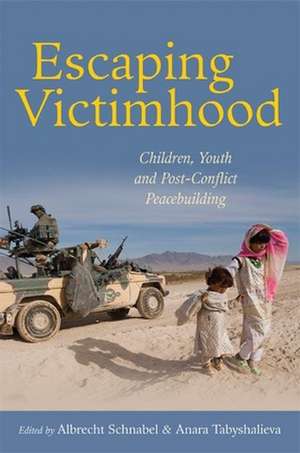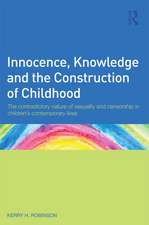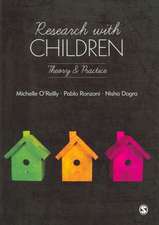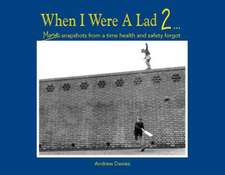Escaping Victimhood: Children, Youth, and Post-Conflict Peacebuilding
Editat de Albrecht Schnabel, Anara Tabyshalievaen Limba Engleză Paperback – 29 ian 2014
In the aftermath of violent conflict, a society seeking to rebuild its future needs to consider the interests and needs of its young generation, and these young people need to participate in the process. Yet, trapped in a state of protracted victimhood, children and youth are too often overlooked in post-conflict peacebuilding. Their voices will not be heard unless they can escape the chains of victimhood and their proper role in postwar recovery is recognized.
In Escaping Victimhood, a diverse group of researchers and scholar-practitioners working in academia, nongovernmental, and international organizations examine the proactive roles of girls and boys in promoting security for themselves and their families. They discuss the disproportionate suffering and specific vulnerabilities of the young during and after war, as well as the international legal frameworks created to protect and empower these groups in post-conflict environments.
The authors provide examples of initiatives to help young people escape the traps of victimhood and voicelessness and actively engage in rebuilding their communities and nations, and they examine international and national efforts to provide for the security of children and young people in post-conflict environments.
Children and youth are essential catalysts for the successful rebuilding of war-torn societies. Many will reach adulthood as new social, economic, and political orders are being consolidated, as first elections are held, and as local groups take over assistance and rebuilding efforts. The young post-war generation will become the next leaders, parents, and teachers, hence ensuring its active role in post-conflict peacebuilding today could help build a sustainable peace tomorrow.
In Escaping Victimhood, a diverse group of researchers and scholar-practitioners working in academia, nongovernmental, and international organizations examine the proactive roles of girls and boys in promoting security for themselves and their families. They discuss the disproportionate suffering and specific vulnerabilities of the young during and after war, as well as the international legal frameworks created to protect and empower these groups in post-conflict environments.
The authors provide examples of initiatives to help young people escape the traps of victimhood and voicelessness and actively engage in rebuilding their communities and nations, and they examine international and national efforts to provide for the security of children and young people in post-conflict environments.
Children and youth are essential catalysts for the successful rebuilding of war-torn societies. Many will reach adulthood as new social, economic, and political orders are being consolidated, as first elections are held, and as local groups take over assistance and rebuilding efforts. The young post-war generation will become the next leaders, parents, and teachers, hence ensuring its active role in post-conflict peacebuilding today could help build a sustainable peace tomorrow.
Preț: 289.40 lei
Nou
Puncte Express: 434
Preț estimativ în valută:
55.38€ • 57.96$ • 46.09£
55.38€ • 57.96$ • 46.09£
Carte tipărită la comandă
Livrare economică 31 martie-14 aprilie
Preluare comenzi: 021 569.72.76
Specificații
ISBN-13: 9789280812114
ISBN-10: 9280812114
Pagini: 340
Dimensiuni: 152 x 229 x 23 mm
Greutate: 0.39 kg
Editura: Brookings Institution Press
Colecția United Nations University Press
ISBN-10: 9280812114
Pagini: 340
Dimensiuni: 152 x 229 x 23 mm
Greutate: 0.39 kg
Editura: Brookings Institution Press
Colecția United Nations University Press
Notă biografică
Albrecht Schnabel is a senior fellow in the Research Division of the Geneva Centre for the Democratic Control of Armed Forces. Anara Tabyshalieva is an assistant professor of history at Marshall University and a research fellow at the Institute for Regional Studies, Kyrgyzstan.
Descriere
In the aftermath of violent conflict, a society seeking to rebuild its future needs to consider the interests and needs of its young generation, and these young people need to participate in the process. Yet, trapped in a state of protracted victimhood, children and youth are too often overlooked in post-conflict peacebuilding. Their voices will not be heard unless they can escape the chains of victimhood and their proper role in postwar recovery is recognized.
In Escaping Victimhood, a diverse group of researchers and scholar-practitioners working in academia, nongovernmental, and international organizations examine the proactive roles of girls and boys in promoting security for themselves and their families. They discuss the disproportionate suffering and specific vulnerabilities of the young during and after war, as well as the international legal frameworks created to protect and empower these groups in post-conflict environments.
The authors provide examples of initiatives to help young people escape the traps of victimhood and voicelessness and actively engage in rebuilding their communities and nations, and they examine international and national efforts to provide for the security of children and young people in post-conflict environments.
Children and youth are essential catalysts for the successful rebuilding of war-torn societies. Many will reach adulthood as new social, economic, and political orders are being consolidated, as first elections are held, and as local groups take over assistance and rebuilding efforts. The young post-war generation will become the next leaders, parents, and teachers, hence ensuring its active role in post-conflict peacebuilding today could help build a sustainable peace tomorrow.
In Escaping Victimhood, a diverse group of researchers and scholar-practitioners working in academia, nongovernmental, and international organizations examine the proactive roles of girls and boys in promoting security for themselves and their families. They discuss the disproportionate suffering and specific vulnerabilities of the young during and after war, as well as the international legal frameworks created to protect and empower these groups in post-conflict environments.
The authors provide examples of initiatives to help young people escape the traps of victimhood and voicelessness and actively engage in rebuilding their communities and nations, and they examine international and national efforts to provide for the security of children and young people in post-conflict environments.
Children and youth are essential catalysts for the successful rebuilding of war-torn societies. Many will reach adulthood as new social, economic, and political orders are being consolidated, as first elections are held, and as local groups take over assistance and rebuilding efforts. The young post-war generation will become the next leaders, parents, and teachers, hence ensuring its active role in post-conflict peacebuilding today could help build a sustainable peace tomorrow.













